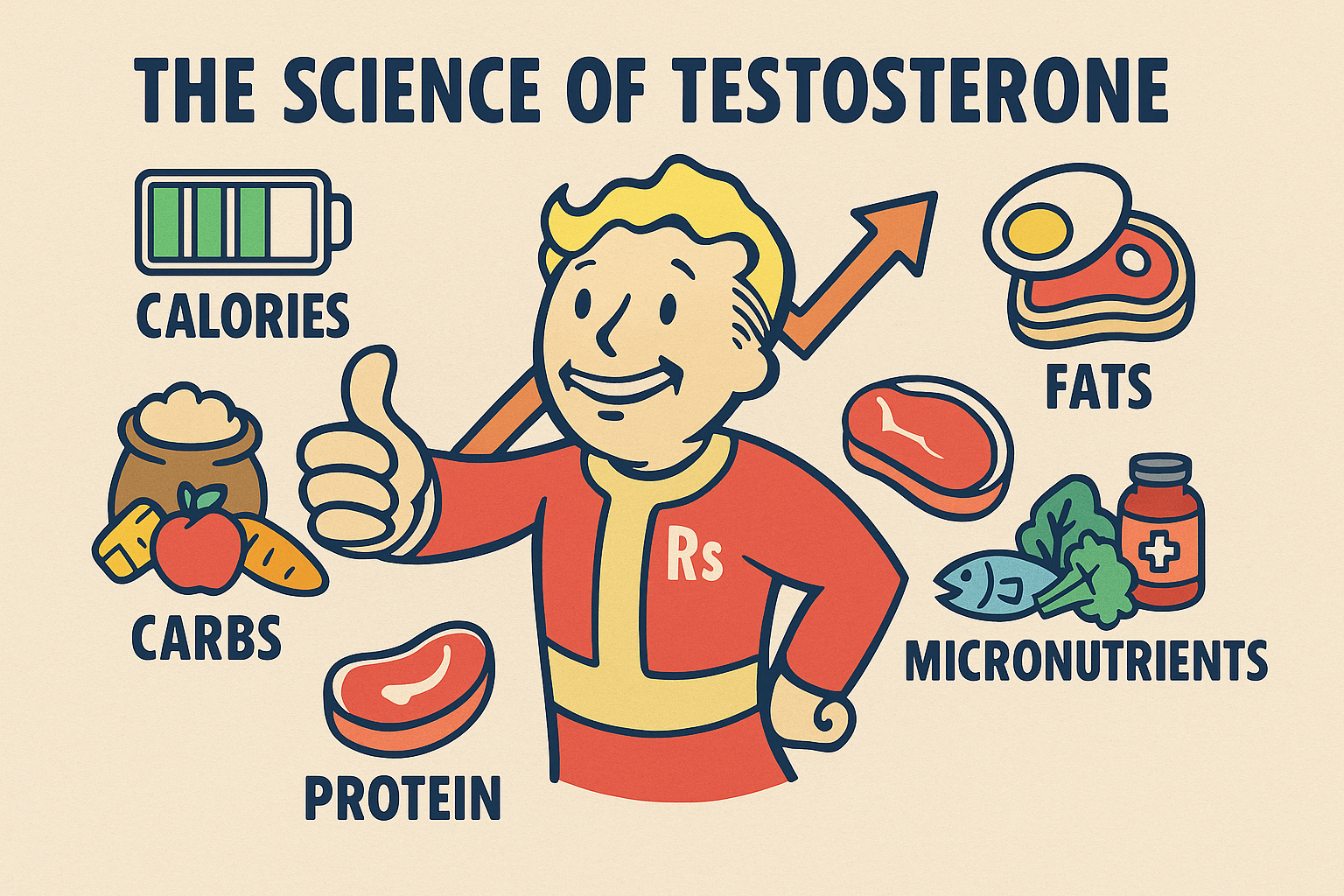Testosterone isn’t just about muscle gains or masculinity—it’s a powerful hormone that fuels strength, recovery, energy, drive, and even mental clarity in both men and women. While supplements and workouts can help, what you eat plays a foundational role in how your body produces and manages testosterone.
Energy Intake: Fueling Hormonal Function
Your body needs sufficient energy to keep your hormones in balance. When calories drop too low—due to extreme dieting, aggressive fat loss, or overtraining—testosterone levels can take a hit. That’s because your body sees energy shortage as a survival threat and cuts back on "non-essential" systems like muscle growth, reproductive function, and recovery.
Takeaway: Don't starve your hormones. Support your activity level with enough calories to stay in balance.
Dietary Fats: The Building Blocks of Hormones
Fats aren’t the enemy. In fact, they’re crucial for hormone production. Research has shown that diets rich in healthy fats, particularly saturated and monounsaturated fats (like those found in olive oil, eggs, avocados, and red meat), support testosterone levels.
Low-fat diets may impair your body’s ability to produce testosterone.
Pro Tip: Aim for a balanced intake of quality fats every day.
Carbohydrates: Supporting Hormones & Recovery
Carbs do more than provide energy—they support a healthy hormone balance. When carb intake is too low for too long, the stress hormone cortisol can rise, which can reduce testosterone production. This is especially true for athletes or people training intensely.
Smart move: Include plenty of whole-food carbs—think rice, oats, potatoes, and fruit—particularly around your workouts.
Protein: Crucial, but Keep It Balanced
Protein is vital for muscle repair and recovery, but overdoing it while neglecting carbs or fats can negatively affect your hormones. High-protein, low-fat, and low-carb diets may suppress testosterone if sustained for too long.
The key: Keep protein moderate and well-balanced with adequate carbs and fats.
Micronutrients: The Unsung Heroes
Micronutrients—vitamins and minerals—play a huge role in hormone production and balance:
-
Zinc: Essential for healthy testosterone production. Deficiency can drop your levels.
-
Magnesium: Supports enzyme activity linked to hormone regulation.
-
Vitamin D: Technically acts like a hormone and has strong links to healthy testosterone levels.
Tip: Eat a nutrient-rich diet full of whole foods—meat, fish, eggs, nuts, seeds, greens—and get sunlight where you can.
Supplement support:
Top up with Zinc, Magnesium, and Vitamin D3 from our Vitamins & Minerals collection — especially useful for hard-training athletes or those working indoors.
Putting It All Together
To support healthy testosterone levels:
-
Eat enough total calories
-
Prioritise healthy fats
-
Maintain steady carb intake, especially if training hard
-
Keep protein balanced
-
Ensure good intake of key vitamins and minerals
Final Word
Your testosterone levels respond to how you live. Poor diet, nutrient gaps, and under-eating can suppress it quietly over time. On the flip side, a well-fed, well-fuelled body creates the perfect environment for hormonal strength, recovery, and confidence.
Food is more than fuel—it’s chemistry. Get it right, and your energy, mood, and performance follow.
Study Reference: Manipulation of Dietary Intake on Changes in Circulating Testosterone Concentrations.
Zamir A, Nemet D, Zigel L, Eliakim A.
PMID: 34684376
